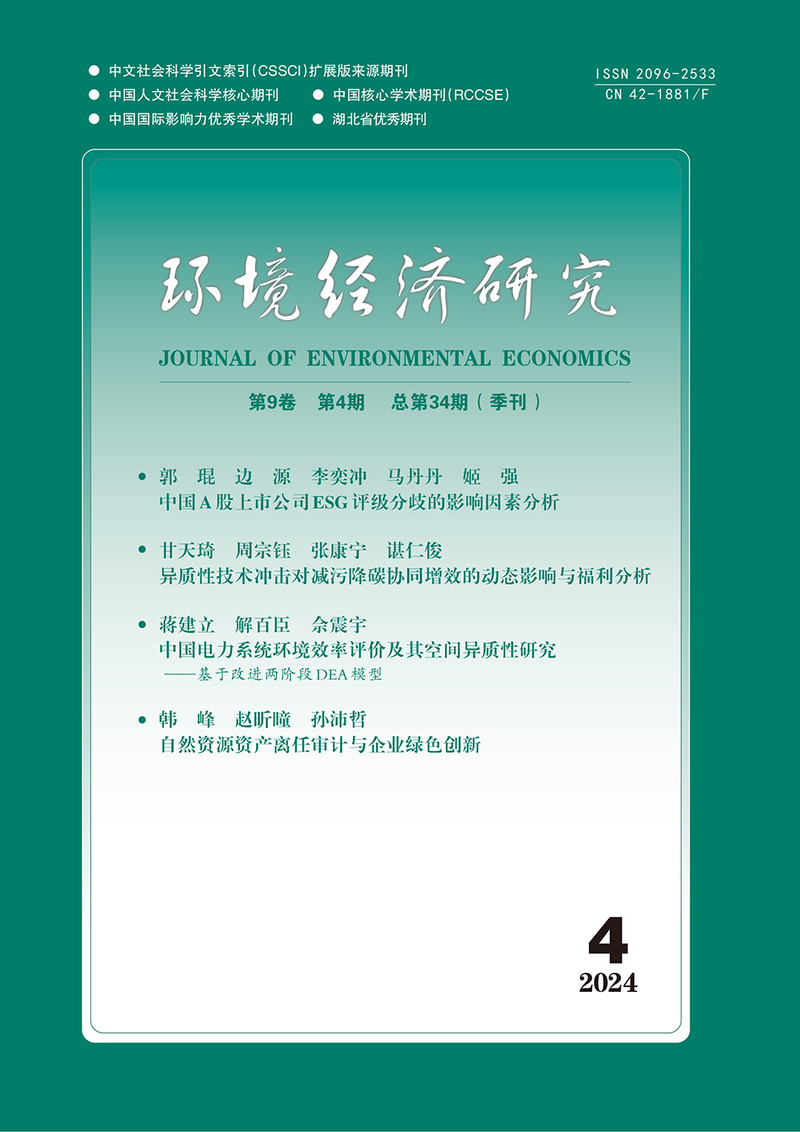Progress of Theories and Methods on Energy Rebound Effect
Zha Donglan, Chen Qian and Wang Qunwei
摘要:能源回弹效应是指能源效率提高并未达到预期节能效果的经济现象,其对能源 、经济 与 环 境 系 统 协 调 与 可 持 续 发 展 产 生 了 不 利 影 响 。自“Khazzoom-Brookes(K-B)假说”提出以来,学术界试图利用新古典经济学及新兴经济学分支学科理论探究回弹效应的机制,揭示回弹效应的影响因素,旨在完善回弹效应的分析框架,为回弹效应的实证检验奠定坚实的理论与方法论基础。基于此,本文首先在宏观和微观两个层面上总结了回弹效应的内涵界定,阐明了不同界定形式的适用性;然后依据回弹效应发展脉络,系统梳理了回弹效应在新古典经济学框架下的理论机制,以及在新兴经济学分支学科视角下的拓展性阐释;进而,对回弹效应的研究方法进行了归纳,探讨了不同方法的适用范围、优缺点及其修正或改进;最后,总结了能源回弹效应研究中存在的问题并对未来需要关注的方向进行了展望。
关键词:回弹效应;能源效率;能源需求;新古典经济学;新兴经济学
Abstract: Energy rebound effect refers to the economic phenomenon that the improvement of energy efficiency does not achieve the expected effect of energy conservation, which has a negative impact on coordinated and sustainable development of Energy-Economy-Environment System. Since the“K-B hypothesis”was put forward, many scholars have tried to explore the mechanism and influencing factors of rebound effect using the theories of neoclassical economics and emerging economics branches, aiming to improve the analytical framework of rebound effect and lay a solid theoretical and methodological foundation for the empirical study. This paper firstly discusses the definition of rebound effect and the applicability of different definition forms at the macro and micro levels, and systematically combs the theoretical mechanism of the rebound effect under the framework of neoclassical economics, as well as its expanded interpretation from the perspective of emerging economics branches. Then, this paper summarizes the research methods of rebound effect, discusses the application range, the advantages and disadvantages, as well as the improvement of different methods. And finally points out the existing problems in the study of energy rebound effect and looks forward to the issues that deserve attention in the future.
Keywords: Rebound Effect; Energy Efficiency; Energy Demand; Neoclassical Economics; Emerging Economics
基金项目:国家自然科学基金面上项目“定制化信息反馈对个人节能行为的影响及路径研究——基于现场实验的方法”(72074111)。
DOI:10.19511/j.cnki.jee.2021.01.010
